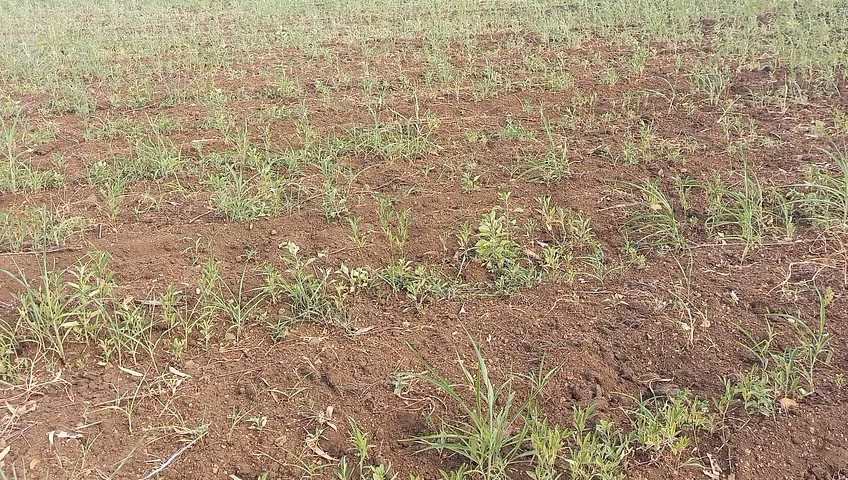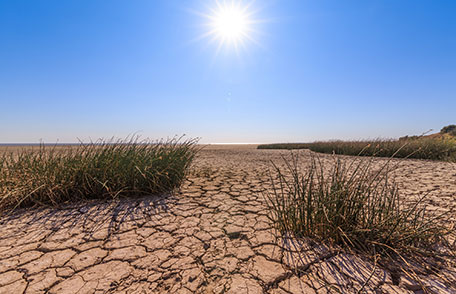It is high time to think afresh and start interest-free windows in banks even without naming it as Shariah, after all what is there in the name. Saving the lives of not only the farmers but other debt-ridden poor persons, should be the genuine cause of concern.
– Mohammed Atherulla Shariff
The saying ‘when tragedies come, they come in battalions’ seems to be true in Kalaburagi district which is known as the tur bowl of Karnataka. It was excess rainfall last year which devastated the standing crops. Later it was the wilt disease which created havoc and compounded the woes of the farmers. This year it is the erratic monsoon which is attributed to the farmers’ suicides every second day this year.
The tur growing farmers unable to bear the pressure of private moneylenders and Gramin Banks have resorted to end their lives. Reportedly 250 tur growers have committed suicides since April this year. In September, Kalaburagi saw a farmer suicide every second day. According to the District Crime Records Bureau (DCRB), the drought condition caused by erratic rainfall prompted 29 debt-ridden tur growers to end their lives since the start of the kharif season in June. This includes three cases in June, five in July, seven in August and 14 in September.
According to the agriculture department, tur is grown in 5,95,250 hectares out of a total of 8,65,024 hectares, accounting for 69% of the total sowing areas in Kalaburagi district. A joint estimation conducted by the officials revealed that 33% of crops, including tur grown on 1,94,969 hectares, are severely hit by rain deficit this kharif season. The tur crop grown in neighbouring Bidar, Raichur and Yadgir districts has also been ruined due to the irregular monsoon.
 Agriculture experts say that tur plants have grown to only two feet, instead of four feet, by the end of September. This will have an adverse effect on the yield apart from the quality of the crop. Kalaburagi district accounts for the highest tur crop production in Karnataka, and roughly a tenth of India’s production. The loss of tur crop has compounded the woes of farmers, who were plunged into a debt trap last year due to the wilt disease. The government has disbursed Rs 118 crore to farmers out of the total Rs 181 crore compensation to be paid.
Agriculture experts say that tur plants have grown to only two feet, instead of four feet, by the end of September. This will have an adverse effect on the yield apart from the quality of the crop. Kalaburagi district accounts for the highest tur crop production in Karnataka, and roughly a tenth of India’s production. The loss of tur crop has compounded the woes of farmers, who were plunged into a debt trap last year due to the wilt disease. The government has disbursed Rs 118 crore to farmers out of the total Rs 181 crore compensation to be paid.
Undoubtedly the consumers have to feel the pinch this year. The situation has resulted in poor arrivals of tur in the Agricultural Produce and Livestock Market Committee Yard in Kalaburagi. Consequently, prices have shot up to Rs 13,000 per quintal, an all-time high.
Containing man-made calamities
Natural calamities are not new to the farmers elsewhere also. They can manage the losses in subsequent years. But what is distressing them is the man-made calamity – the burden of debt laced with compound interest. When the moneylenders start putting pressure and threaten them with dare consequences, it is both economic issue and social stigma that compels the farmers to take the extreme step.
MS Swaminathan, the ‘visionary father’ of India’s green revolution who died recently, was very much true when he had said categorically that ‘interest-free banking’ is the only solution to the farmers’ crisis. Senior economists and bankers have also advocated for interest-free banking in India.
After long deliberations and discussions and lots of homework, the Reserve Bank of India was convinced about the feasibility of interest-free banking. It had announced opening of Shariah Compliance Window in State Bank of India in November 2014. But thanks to Dr. Subramaniam Swamy, who filed a writ against ‘shariah’ word and spirit in this announcement. It was a sufficient excuse for the new government at that time to dump the whole issue into cold storage.
It is high time to think afresh and start interest-free windows in banks even without naming it as Shariah, after all what is there in the name. Saving the lives of not only the farmers but other debt-ridden poor persons, should be the genuine cause of concern.




